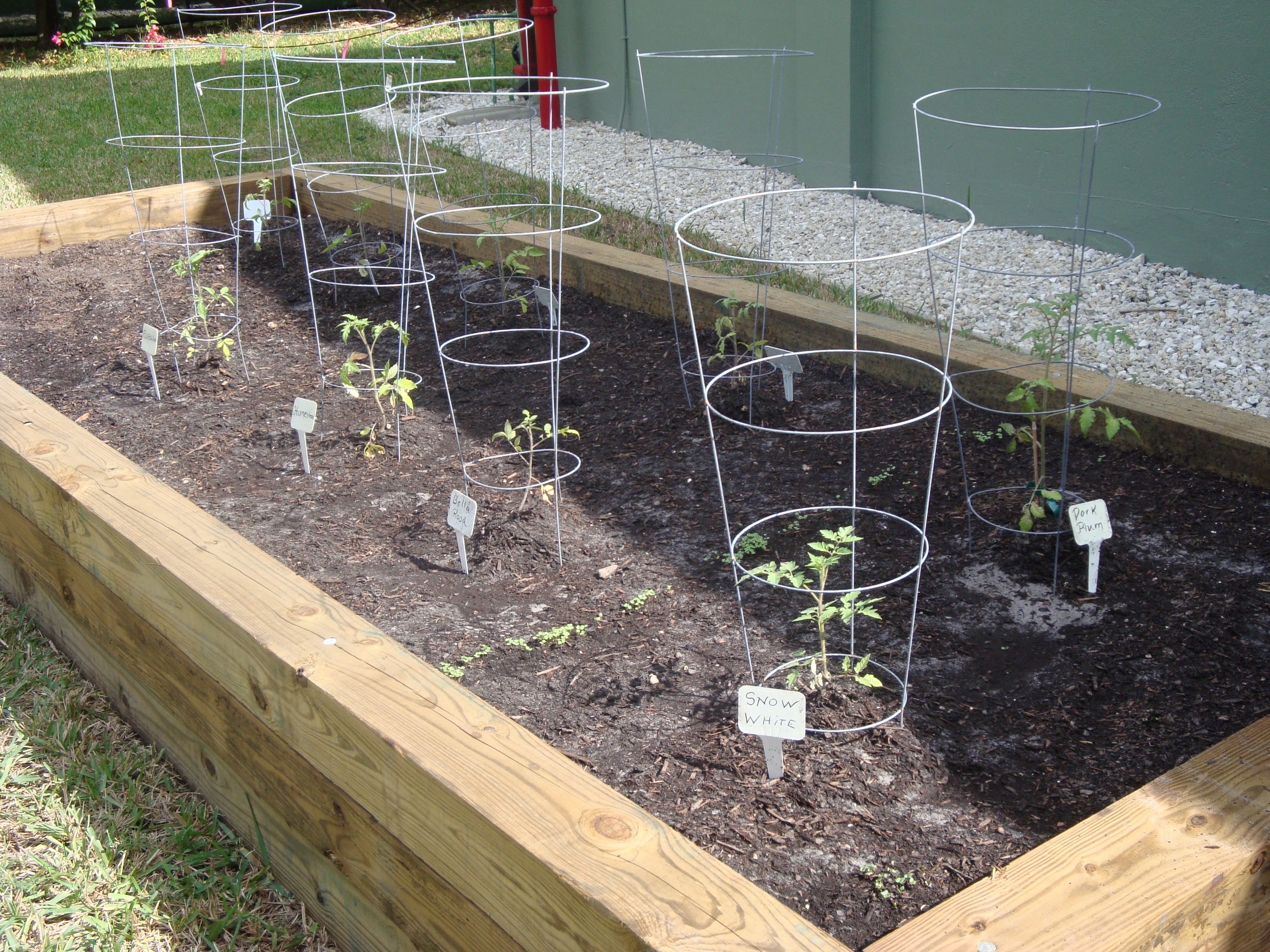You Say Tomato, Part II
November 21, 2009

In the September Estates blog post, You Say Tomato, I Say…, I discussed how to start tomato plants. Already, the tomatoes are sprouting and are big enough to leave the greenhouse flats. They are now in 4” pots and available for purchase.
Many people don’t realize, but the tomato is actually a fruit. They are low in fat and packed with fiber, Lycopene, Vitamin C, Vitamin A, Potassium, Iron, Calcium, and Folate.
When you plant the varieties of tomatoes I have chosen for our Florida climate (Bella Rosa, Floralina, Homestead, Florida Basket, Snow White, and Cherokee Purple) there are some techniques you should employ to increase your chance of success:
- Plant in raised beds, mounds, containers, or buckets with holes drilled for drainage
- Use the best good draining soil possible
- Place in full sun
- Water when the soil is dry
- Incorporate organic fertilizers
- Insert a tomato cage
Tomatoes are what you call “heavy feeders,” needing a balanced fertilizer throughout the growing season (September through April). The Estates uses worm castings, sea kelp, fish emulsion, bone meal, and Espoma brand fertilizer on ours. We spray a soap solution once a week to keep insects at bay, and hand- pick the caterpillars off the leaves. Tom’s Plant Soap is available in the Estates Museum Store. Other insecticides include neem oil, hot pepper spray, and pyrethroids. As always read the label directions. Beware of blossom end rot (caused by a calcium deficiency) and fungal diseases, such as early blight and light blight (soil borne fungi). Copper fungicide is labeled for tomatoes and can help control fungal diseases.
Cultural practices highly affect the outcome of tomatoes. Hand watering at the root zone or using drip irrigation in the morning hours can help prevent withering. Wetting the soil roots rather than the foliage decreases the chances of fungal diseases. Put dead leaves and rotting fruit in your regular garbage (you don’t want to risk contaminating your compost). High nitrogen fertilizer should be avoided as well.
You can purchase Estates sprouted tomato plants, fertilizers, insecticides, and fungicides at the Estates Garden Shoppe, open daily from 9AM-5PM, or at the Downtown Farmers Market on Thursdays from 7AM-2PM. We will keep you posted on the progress of our tomato plants.


